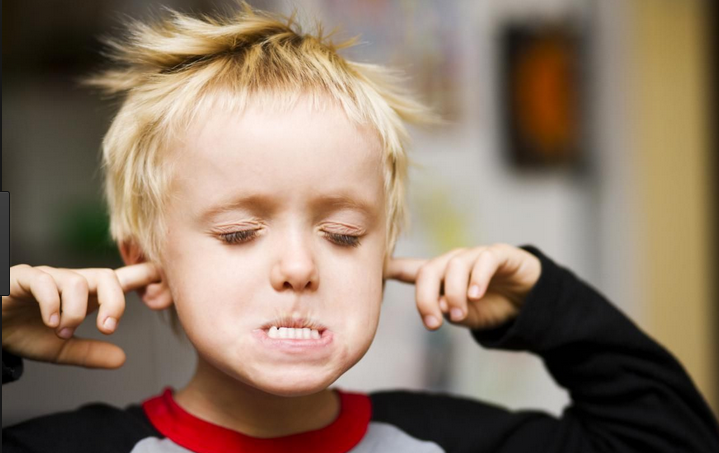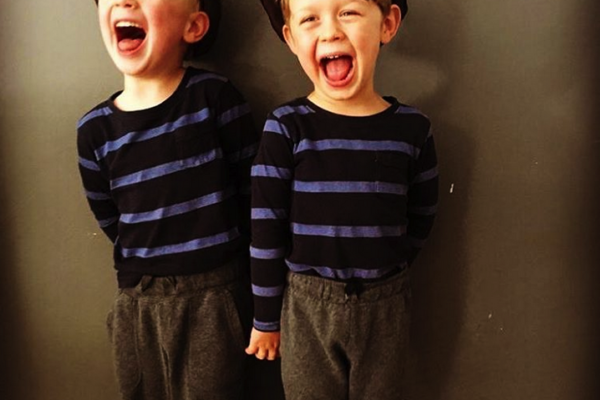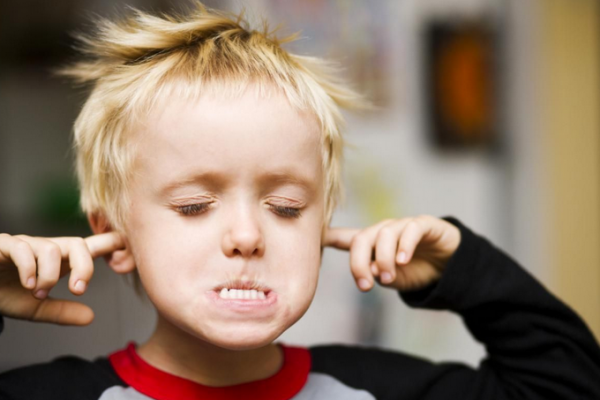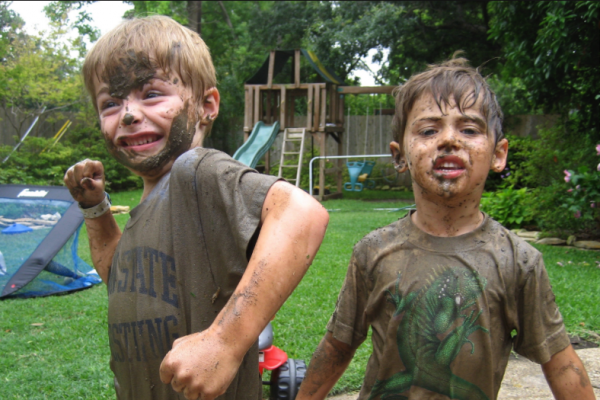
Why Small Kids Misbehave
Kids who misbehave need more than just correction.
They need understanding. I am not saying don’t correct them, but if you correct them but fail to understand why they’re acting like a demon, you’re missing a trick.
By misbehaving I think of things like your child climbing on the baby, shouting, hitting, throwing things, or doing the last thing you told them not to do. On the terrifying end of the behavioural spectrum they throw a tantrum, or thrash on the floor, or hold their breath or even vomit on demand.
There are 3 reasons kids act badly. The first two you can guess right away. One, they’re immature. It takes time to learn to act well, to obey, to have manners, and to control one’s self. Two, they’re selfish. It takes lots of insight and plenty of coaching to learn to treat others well.
But there’s a third reason we overlook.
Knowing this third reason helps us tap into 4 perks. It will help you:
- understand your kid better.
- give you a dose of empathy towards and patience with your kid.
- deal better with their current bad behaviour.
- prevent some bad behavior in the future.
Ready for reason three, the focus of this post?
Why does my kid act badly? Answer: they feel badly.
Ha! So simple, yet so often missed in our diagnosis of why our child is acting like a demon.
In fact, it’s true of adults too. Think honestly about your own behaviour. When do you play up in your relationships, in your work? For me, it’s when I feel bad.
If it’s true of adults, it’s exponentially true of smaller lives…
When they feel bad, they act bad.
I think of a few nights ago. After Julie doing a lot of musical beds with 2 sick twins, I was eventually brought into the game. Suffice to say I needed a bed to sleep in at 3am, so I displaced Ivy and put her in a double bed without her waking up. (An impressive feat.) At about 5am I woke to her prodding me: ‘I want to sleep in my own bed.’ So I invited her to climb in next to me. ‘On my own! You must get out!’ Knowing better than to fight for a part of her bed, I clambered out and went and sat on the couch, dazed by the fact that I’d lost my place in the world.
She came to find me and Chucky-style demanded, ‘I want my bed … perfect!’
I jumped at her command – tidying it up as perfectly as I could. Apparently it wasn’t right, though I could not get out of her what I could do better.
My penalty for my incompetence: her running through the house screaming in tears until everyone was up.
That’s immaturity. That’s selfishness. But at the root of it all was a trigger – she felt really bad.
Which brings up my next question:
What do I mean by kids feeling bad?
Knowing what makes our kids feel bad is an art in itself. And yet, as I have reflected on kids going nuts over the last years, there are 6 recurring triggers (I added to and adapted it from an Australian book, Taming your Toddler.)
Being the collector of parenting hacks I am, I created an acronym to remember these triggers: DRAFTS.
DRAFTS stands for Discomfort, Rattled, Anxious, Frustrated, Threatened or Starved-for-attention.
So, here’s my gift to you. Next time your kid plays up, run through the DRAFTS questions and find out which one or two it is:
1. Are they in discomfort (because of sickness, tiredness or hunger)?
When your tummy or tooth aches, when your blood sugar levels are low, when you’re exhausted – you tend to act poorly. How much more so when you were one-twentieth your age?
2. Are they rattled (because of disruption or tension)?
Kids tend to behave badly when we break their sleep or food routines or move them from house to house.
But they also pick up on when we’re rattled. Notice how they’re inclined to act badly when we fight with our spouse, or come home stressed out by work or money problems. They’re canaries in a coal-mine that way.
3. Are they anxious (that I’m going to leave them)?
When they’re toddlers they need you. You’re their anchor, the wind in their wings, the sign that the world is a safe place. When you try hand them over to a baby-sitter or a preschool teacher, their world quakes. But it’s not anger, it’s terror that drives the screaming, kicking and tears.
4. Are they frustrated (by their own inability or another’s non-co-operation)?
Their plans exceed their abilities. As adults we (most of us) have learnt to deal with our frustrations, but little kids have not come close to developing their self-control muscle.
When Ivy’s lego creation implodes because of poor structural skills, she has a mini-tantrum. When Charlie asks for his toy lion and I say I can’t find it, he howls.
5. Are they threatened (by another)?
The attention you give them is the air they breathe. That’s why when anyone else threatens to draw away from them what they perceive as a limited supply, that person is viewed as an oxygen-thief. It might be a new baby. Or their sibling that seems to be receiving more attention from you. Or the person you’re speaking on the phone to or face-to-face with (could even be their other parent). Or another child who is visiting.
In a toddlers mind, the only fair amount of attention to get is the majority of it. (I know this firsthand. Julie and I have twins and these guys just don’t buy into the 50-50 reality that is their lot.) If they sense this other person as a threat to their life-supply of your attention, they will do as almost all mammals do.
They will attack.
Hopefully their attack is only verbal: ‘This is my toy! This is my daddy!’ But it might be physical too. Like the child who scraped at my child’s face a few weeks ago. The parent was embarrassed and shocked. ‘My child never usually acts like that!’ she assured us.
6. Are they starved (for more of your attention)?
Not for food, but for your attention.
But we just gave them attention, we think. Yes, but that was like a gulp of air. They need more now. Little kids guzzle down attention like a teenage boy guzzles up food after a big game.
The general rule is that if we fail to give them positive attention, they will resort to negative attention. They’re addicted to attention. Cut their supply, and they’ll break into your life and take it from you – by force.
While I was writing this, Ivy waved something to the side of the screen. I ignored her. So she started to bash her lego construction on my screen. ‘Look daddy!’
I remember Ivy telling me something while we were eating, and I said, ‘I’m busy helping the twins!’ She then started tossing food onto the floor. She knows this is a serious violation in my house, but she prefers negative attention to no attention. Like most kids.
The bottom line is that giving attention is exhausting! (Parents of toddlers almost always go to bed shattered.) But our attempts to save energy reserves by declining our kids’ plea for attention is self-sabotaging. We end up draining ourselves even more by dealing with the bad behaviour in our attention-starved child.
So why did Ivy turn into Frankenstein the other morning?
As I run through DRAFTS, I land upon 3 triggers.
- She was in discomfort. Her tummy ached and she was still tired.
- She was rattled. She woke up in not-her-room.
- She was frustrated. Because I was in her bed and she was struggling to articulate what exactly she meant by it being perfect. Turns out she was referring to the re-positioning of the pillows not the blankets, which is what I tried to fix.
Phew, that explains. Glad I can put that book on child-exorcism away.
Does that make waking everyone up right? Of course not. But it does make it a little more understandable.
Let me sum up.
Ask anyone in the medical world. They will tell you that the worst mistake you can make in treating someone is the wrong diagnosis. Us parents forget that principle at our peril.
Our kids don’t only act poorly because they’re self centred and childish, but because they’re triggered by one of the DRAFTS.
When we identify the trigger we just might be able to affirm what they’re feeling, as well as try meet that need. Even if we don’t reduce their emotional reactivity, merely understanding why they’re behaving like they are will give us a boost of patience. As well as wisdom to reduce future outbursts along these same lines.
So next time your kid turns into Hitler run through DRAFTS:
Could they be …
- in discomfort because of sickness, tiredness or hunger?
- rattled because of disruption or tension?
- anxious that I’m going to leave them?
- frustrated that things aren’t working like they planned?
- threatened by another?
- starved for more of my attention?
Take a minute to memorize it. My guess is that it will account for and help you deal with what’s triggering over 90% of your child’s terrorist antics and emotional reactivity.
Comments
Also published on Medium.




